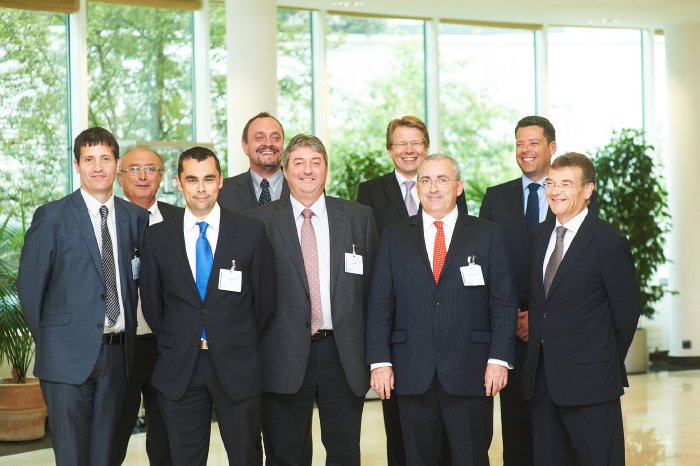EPSCA regards itself as consultant for the different Directorate-Generals of the European Commission. Expert advice will be given through specific working groups assisting in the development of legal directives and practical implementation.
Among other things, the aim of EPCSA is to clearly define the role Port Community Systems already in place can play , within the development of so-called "single windows". In this context, EPCSA takes an additional step, not merely adding another definition to the vast number or approaches already in existence. The central aim is to harmonise and to simplify in future the communication between the current, numerous, heterogeneous systems and platforms in the European ports; in other words, a vast number of "single windows"; through the use of PCS.
As it was stressed on the part of the European Commission Directorate General for Taxation and Customs Union (DG TAXUD) during the celebration, the lack of representation of interests concerning the PCS has so far been a considerable obstacle. It was in particular hardly possible to maintain an overview in the non-traditional customs areas. "Harmonised Port Community Systems will provide structure and give clarity. At the same time, intelligent networks should be created in order to process large numbers of goods without any problem, because costs of energy and transport are increasing permanently," stated Stefan Engels, CEO of dbh Logistics IT AG and Vice Chairman of EPCSA.
PCS should act as a unified information platform, in particular, between customs and other companies having their business premises typically in a port. The role of EPCSA is to inform the public authorities in Europe continuously about the state of the technical development of the PCS. In addition, the various developments of "single windows" should also be taken into account in the future, by providing sufficient capable PCS. The white paper created by EPCSA for this very purpose makes clear that PCS save the European Community both costs and time. The European Union has the most efficient PCS worldwide. Currently, more than a million electronic transactions are being successfully exchanged every day between individual business people in Europe. This is not only a significantly high, but in addition also a very intelligent form of data transmission. Each participant receives only the information relevant to him/her and in the format in which he/she requires it.
The six founding members have agreed to act as a key element in the European port and airport sector.
EPCSA's vision: to support Europe, simplify processes and avoid duplication.
The six most important Port Community Systems in Europe work closely for the first time through EPCSA as an organisation in the legal form of a European Economic Interest Group (EEIG). They are supporting the expansion of currently approximately 40 ports with PCS to more than 200 automatised systems in European airports and seaports. Along with dbh, the international founding members are Maritime Cargo Processing, Portbase, Dakosy, PORTIC and SOGET.
The EPCSA not only provides for its founding members, but also for all interested PCS operators, an international commitment and collaboration in the creation of a harmonised process and communication in European ports. For this purpose, the founding members incorporate more than 35 years know-how. For more information please see http://www.epcsa.eu.


